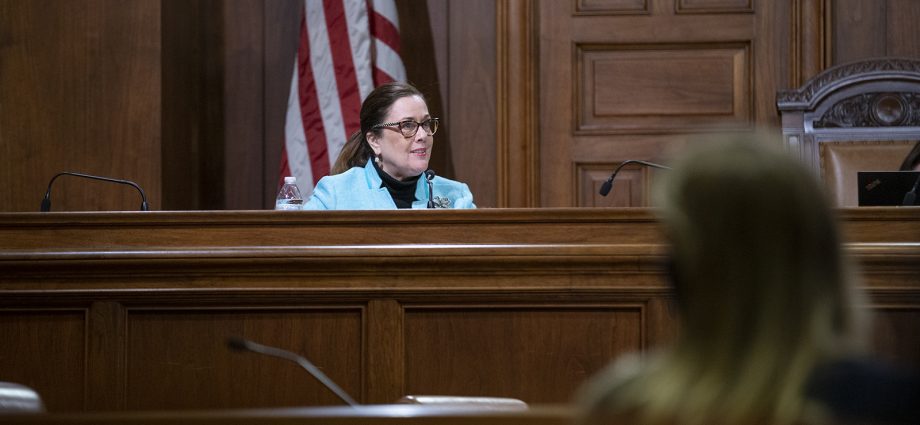Submitted Article
On February 8, Governor Wolf proposed a $45.7 billion budget for fiscal year 2022-2023 that would increase spending by $4.5 billion over the current year’s budget. Based on projections, this will create a $1.3 billion deficit in FY 2023-2024 and produce a $13 billion deficit by FY 2026-27. As part of the process to enact a more responsible state budget, today, Senator Lisa Baker (R-20) participated in a Senate Appropriations Committee budget hearing with the Department of Corrections (DOC)/Board of Probation and Parole, to examine these budget requests.
As chair of the Senate Judiciary Committee, during the hearing Senator Baker questioned Acting Secretary of Corrections George Little and Board Chairman Ted Johnson regarding COVID-19 mitigation efforts, staffing shortages, community safety, a medical parole pilot program, and cost savings as a result of steps previously undertaken. This closer look at the departments’ budgets for the coming year required a look back at some of the most recent cost drivers, including grappling with the effects of COVID-19, and moving forward to a new state of normal.
“All of us recognize that COVID-19 has had an unimaginable impact on the Department of Corrections,” Senator Baker said. “Our frontline workers did not get to zoom or work remotely, and we appreciate the job they have done to keep people safe, especially during challenging times, like those experienced throughout the pandemic.”
Senator Baker explained that as we look at the financial future of DOC, we need to have a full picture of where COVID-19 dollars from the federal government were spent.
“Today we learned that the total amount spent on COVID-19 mitigation by DOC was $1.45 billion, of which $1.275 billion went towards personnel costs, outside of overtime pay. I appreciate that DOC agreed at today’s hearing to provide us with a detailed breakout regarding how all these dollars were spent. As we move forward, it is clear that this same level of spending will not be able to take place in future years, and we need to make certain that there are effective plans put in place to scale back and modify these mitigation efforts.”
The hearing also spent time focusing on Senator Baker’s initiative to implement a medical parole pilot program.
“With the age of the prison population steadily rising, currently 27% of the population is over the age of 50. This increase in age will inevitably lead to an increase in the need for medical care. It warrants consideration that inmates who are suffering from certain severe or terminal illnesses could be more effectively, efficiently, and humanely treated if the Commonwealth were to modify its existing procedures and adopt a medical parole program. Legislation to implement a pilot program is being crafted and would authorize the Pennsylvania Board of Probation and Parole, in consultation with the DOC, to provide medical parole to certain inmates. Obviously among the many considerations would be the type and seriousness of the crime committed, and input would need to be provided by victims, or the Office of Victim Advocate.”
To view the full coverage from the hearing, visit: https://www.pasenategop.com/blog/corrections-probation-parole-2/.

